Charles Sanders Peirce Quotes
Collection of top 32 famous quotes about Charles Sanders Peirce
Charles Sanders Peirce Quotes & Sayings
Happy to read and share the best inspirational Charles Sanders Peirce quotes, sayings and quotations on Wise Famous Quotes.
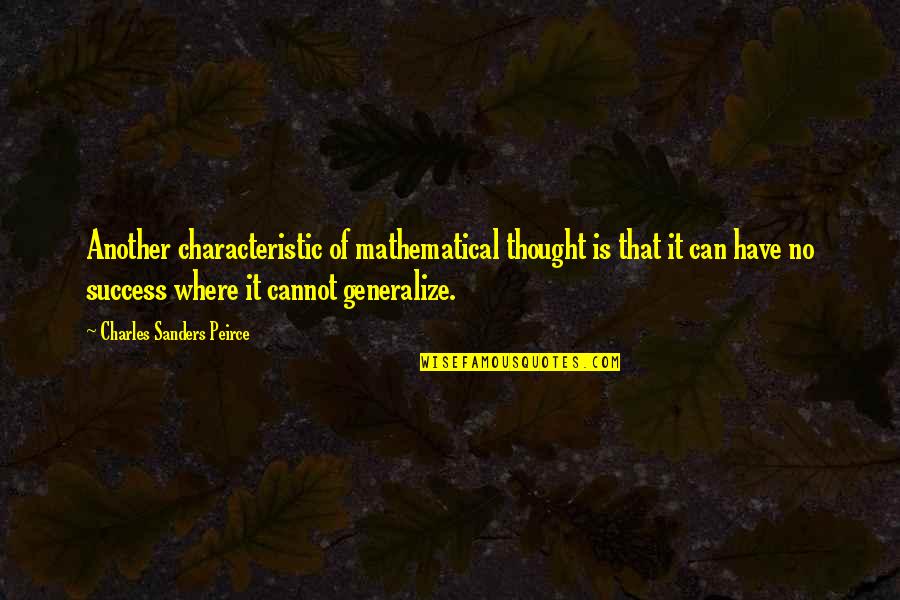 Another characteristic of mathematical thought is that it can have no success where it cannot generalize.
— Charles Sanders Peirce
Another characteristic of mathematical thought is that it can have no success where it cannot generalize.
— Charles Sanders Peirce
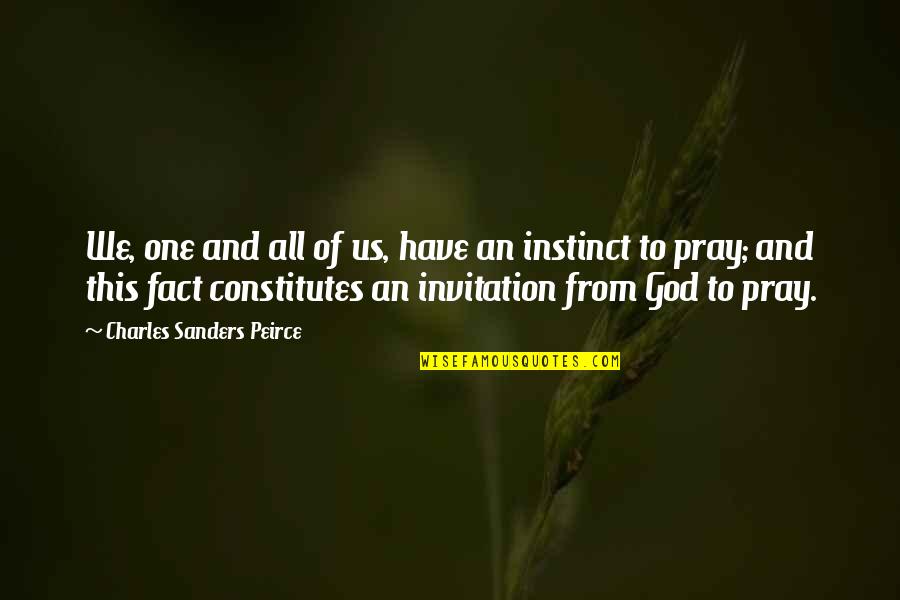 We, one and all of us, have an instinct to pray; and this fact constitutes an invitation from God to pray.
— Charles Sanders Peirce
We, one and all of us, have an instinct to pray; and this fact constitutes an invitation from God to pray.
— Charles Sanders Peirce
![Charles Sanders Peirce Quotes By Charles Sanders Peirce: This branch of mathematics [Probability] is the only Charles Sanders Peirce Quotes By Charles Sanders Peirce: This branch of mathematics [Probability] is the only](https://www.wisefamousquotes.com/images/charles-sanders-peirce-quotes-by-charles-sanders-peirce-1187694.jpg) This branch of mathematics [Probability] is the only one, I believe, in which good writers frequently get results which are entirely erroneous.
— Charles Sanders Peirce
This branch of mathematics [Probability] is the only one, I believe, in which good writers frequently get results which are entirely erroneous.
— Charles Sanders Peirce
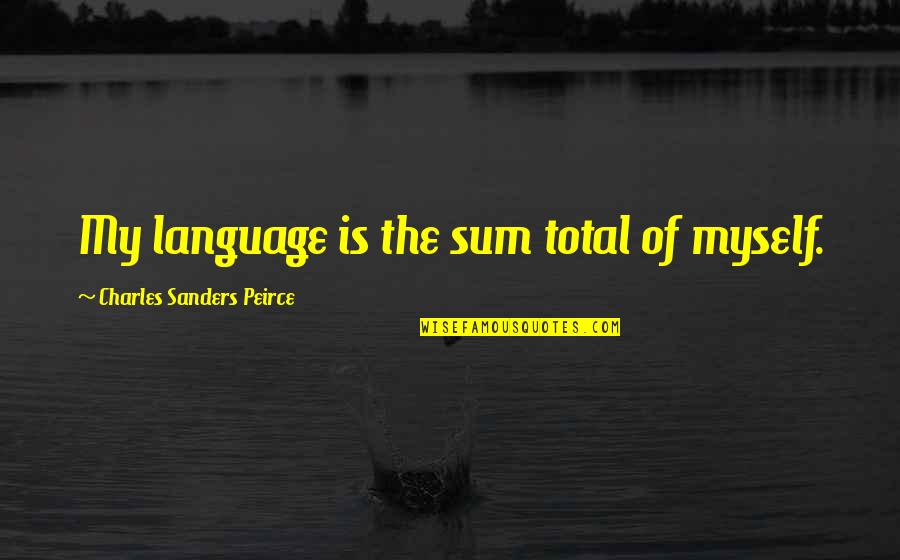 My language is the sum total of myself.
— Charles Sanders Peirce
My language is the sum total of myself.
— Charles Sanders Peirce
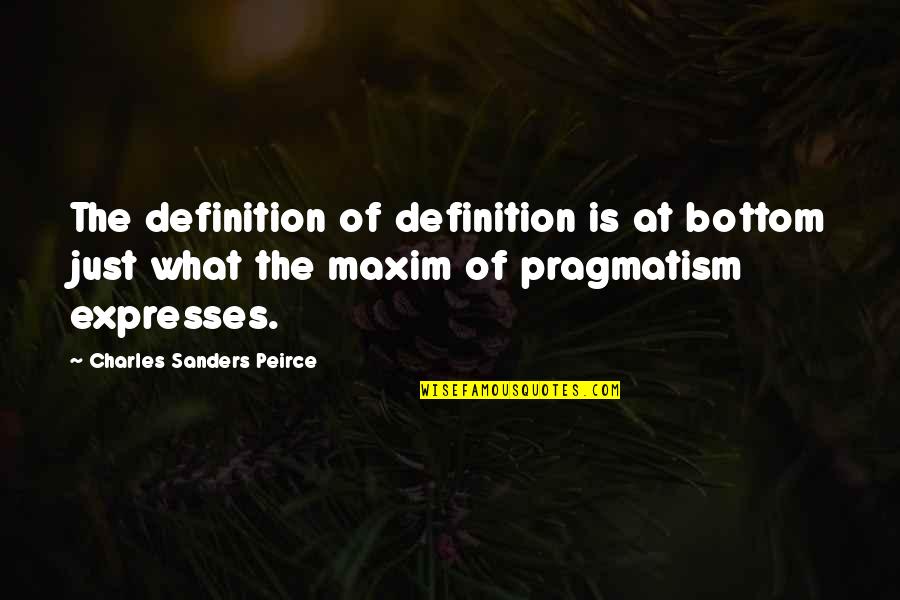 The definition of definition is at bottom just what the maxim of pragmatism expresses.
— Charles Sanders Peirce
The definition of definition is at bottom just what the maxim of pragmatism expresses.
— Charles Sanders Peirce
 We cannot begin with complete doubt.
— Charles Sanders Peirce
We cannot begin with complete doubt.
— Charles Sanders Peirce
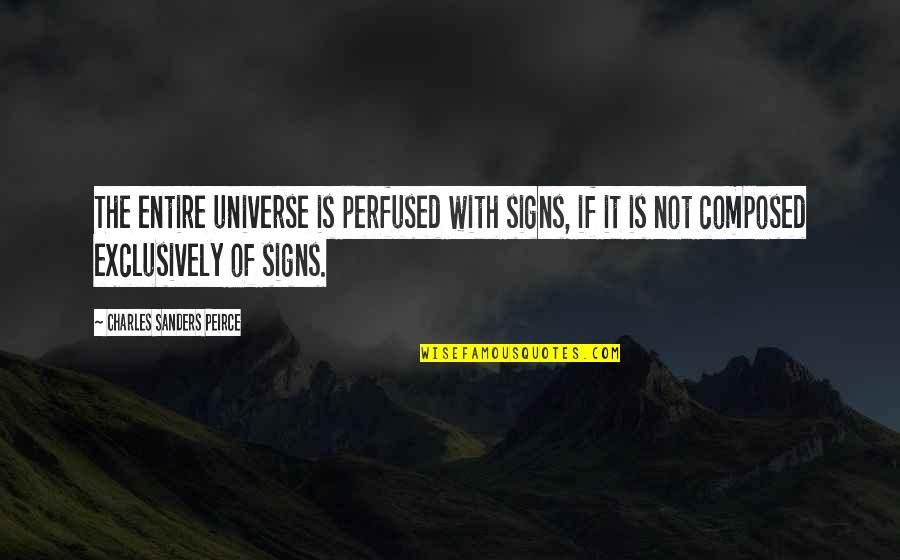 The entire universe is perfused with signs, if it is not composed exclusively of signs.
— Charles Sanders Peirce
The entire universe is perfused with signs, if it is not composed exclusively of signs.
— Charles Sanders Peirce
 By an object, I mean anything that we can think, i.e. anything we can talk about.
— Charles Sanders Peirce
By an object, I mean anything that we can think, i.e. anything we can talk about.
— Charles Sanders Peirce
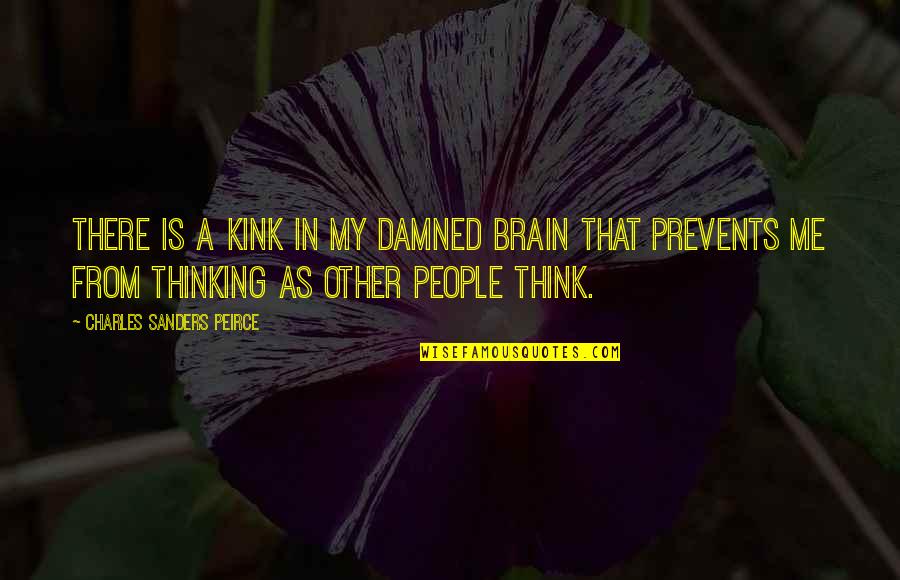 There is a kink in my damned brain that prevents me from thinking as other people think.
— Charles Sanders Peirce
There is a kink in my damned brain that prevents me from thinking as other people think.
— Charles Sanders Peirce
 We think only in signs.
— Charles Sanders Peirce
We think only in signs.
— Charles Sanders Peirce
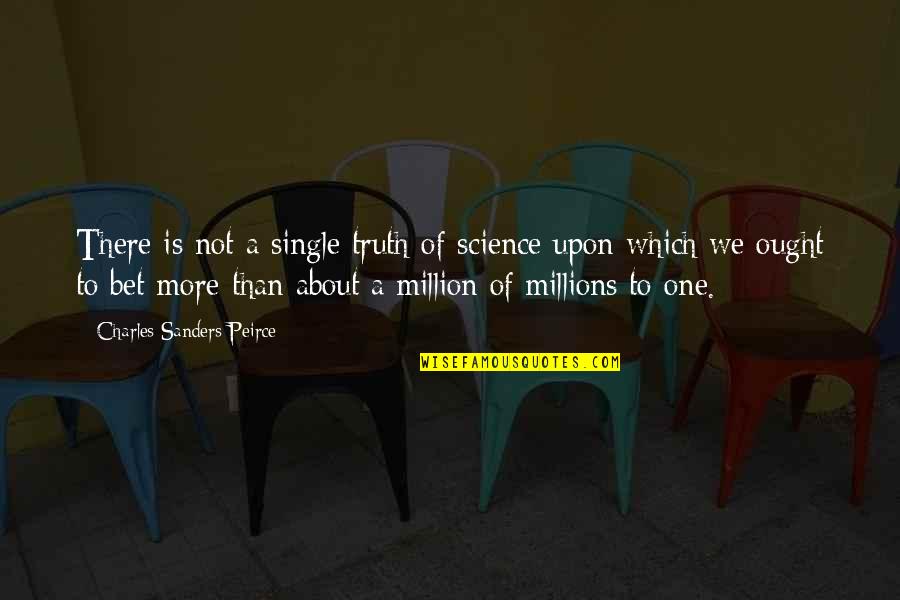 There is not a single truth of science upon which we ought to bet more than about a million of millions to one.
— Charles Sanders Peirce
There is not a single truth of science upon which we ought to bet more than about a million of millions to one.
— Charles Sanders Peirce
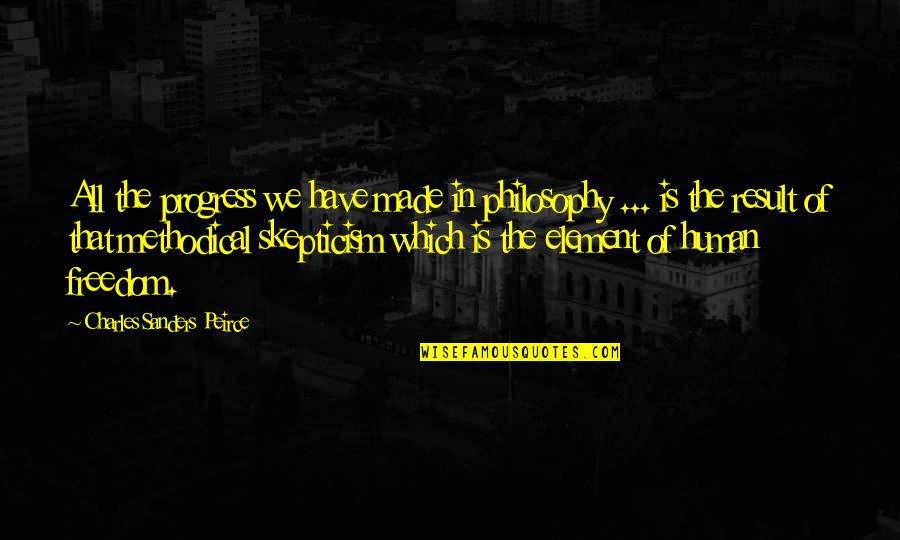 All the progress we have made in philosophy ... is the result of that methodical skepticism which is the element of human freedom.
— Charles Sanders Peirce
All the progress we have made in philosophy ... is the result of that methodical skepticism which is the element of human freedom.
— Charles Sanders Peirce
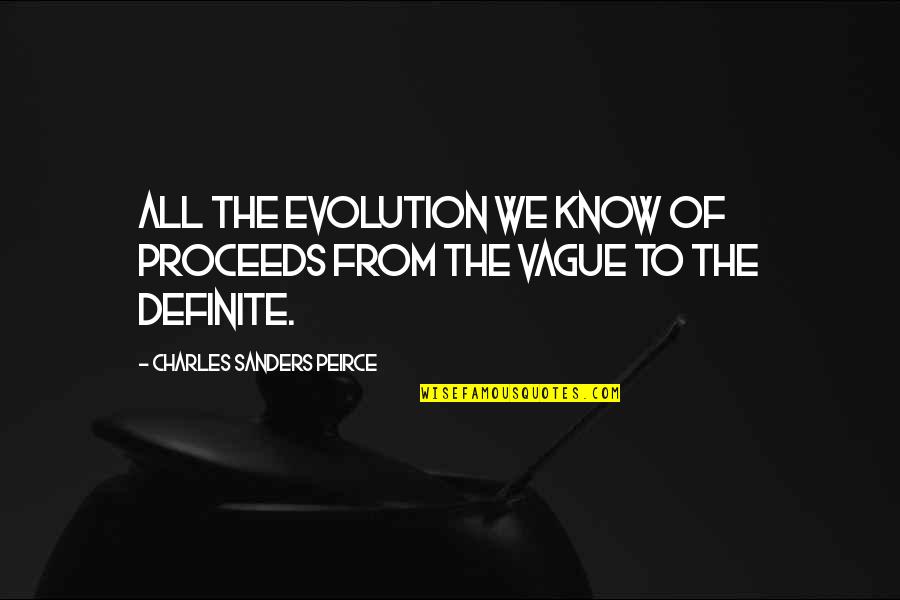 All the evolution we know of proceeds from the vague to the definite.
— Charles Sanders Peirce
All the evolution we know of proceeds from the vague to the definite.
— Charles Sanders Peirce
 And what, then, is belief? It is the demi-cadence which closes a musical phrase in the symphony of our intellectual life.
— Charles Sanders Peirce
And what, then, is belief? It is the demi-cadence which closes a musical phrase in the symphony of our intellectual life.
— Charles Sanders Peirce
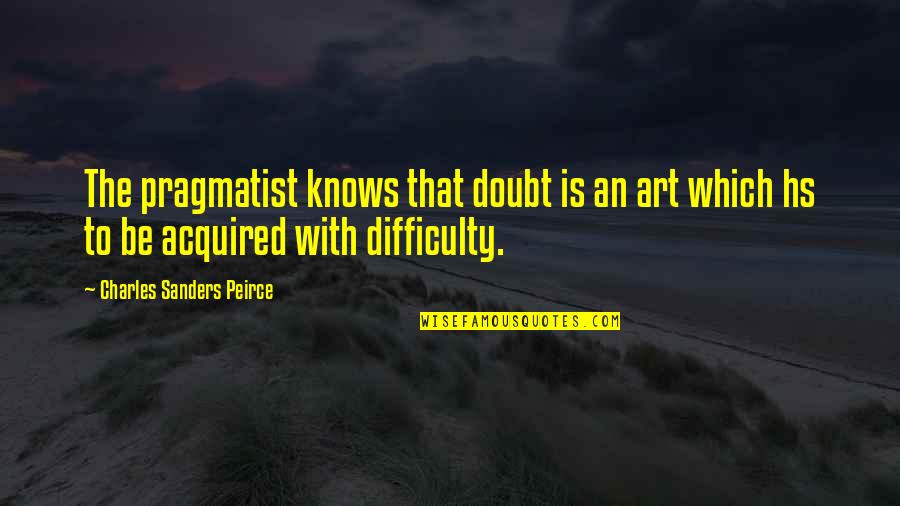 The pragmatist knows that doubt is an art which hs to be acquired with difficulty.
— Charles Sanders Peirce
The pragmatist knows that doubt is an art which hs to be acquired with difficulty.
— Charles Sanders Peirce
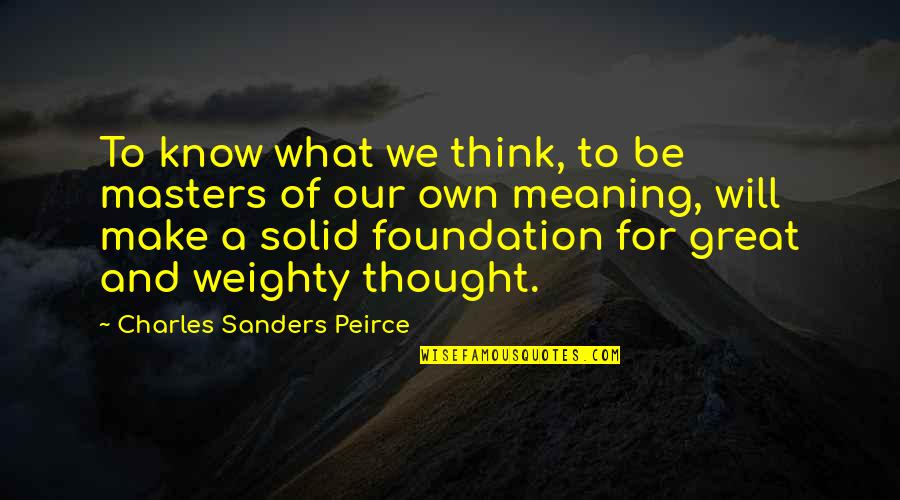 To know what we think, to be masters of our own meaning, will make a solid foundation for great and weighty thought.
— Charles Sanders Peirce
To know what we think, to be masters of our own meaning, will make a solid foundation for great and weighty thought.
— Charles Sanders Peirce
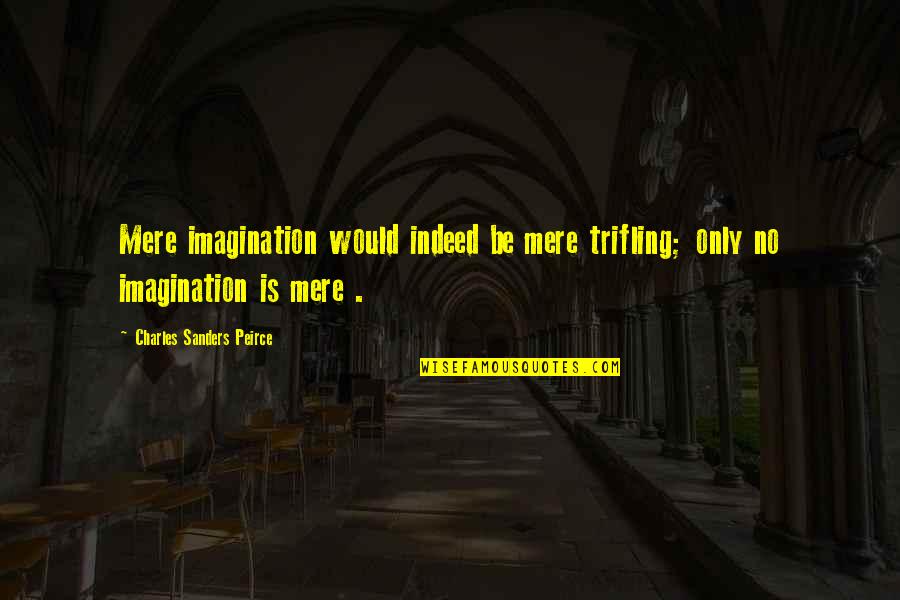 Mere imagination would indeed be mere trifling; only no imagination is mere .
— Charles Sanders Peirce
Mere imagination would indeed be mere trifling; only no imagination is mere .
— Charles Sanders Peirce
 The idea does not belong to the soul; it is the soul that belongs to the idea.
— Charles Sanders Peirce
The idea does not belong to the soul; it is the soul that belongs to the idea.
— Charles Sanders Peirce
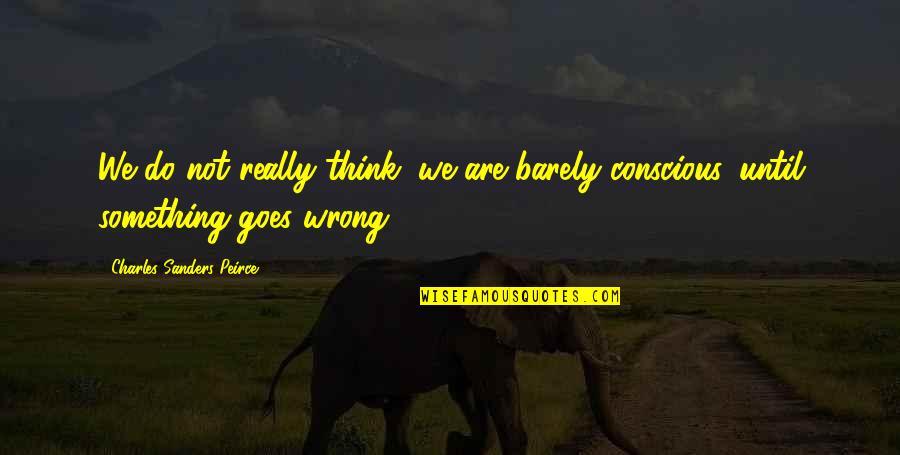 We do not really think, we are barely conscious, until something goes wrong.
— Charles Sanders Peirce
We do not really think, we are barely conscious, until something goes wrong.
— Charles Sanders Peirce
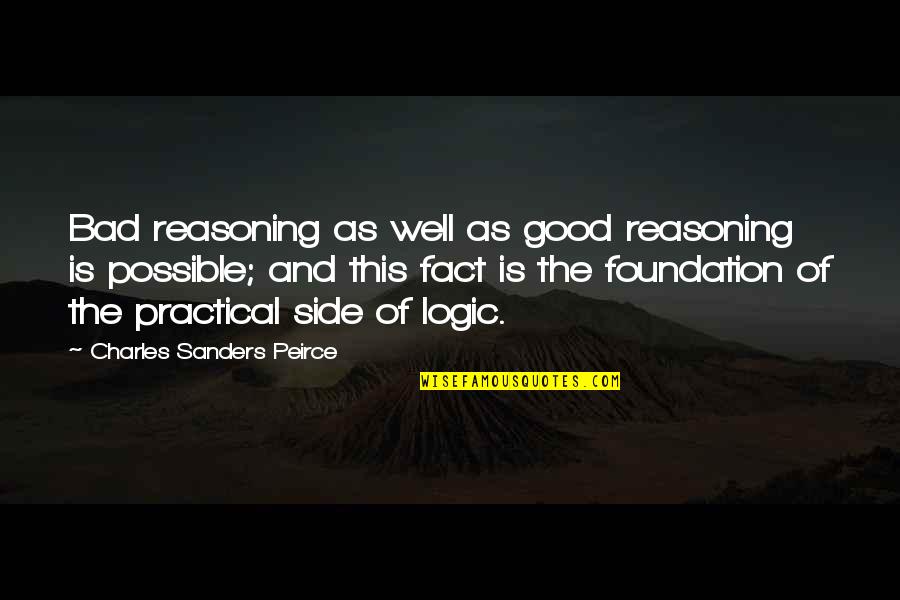 Bad reasoning as well as good reasoning is possible; and this fact is the foundation of the practical side of logic.
— Charles Sanders Peirce
Bad reasoning as well as good reasoning is possible; and this fact is the foundation of the practical side of logic.
— Charles Sanders Peirce
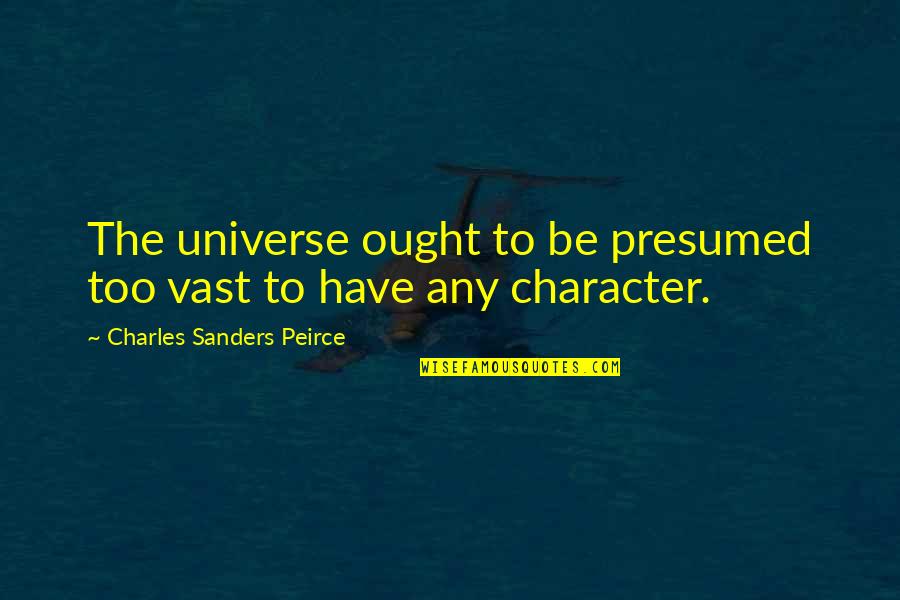 The universe ought to be presumed too vast to have any character.
— Charles Sanders Peirce
The universe ought to be presumed too vast to have any character.
— Charles Sanders Peirce
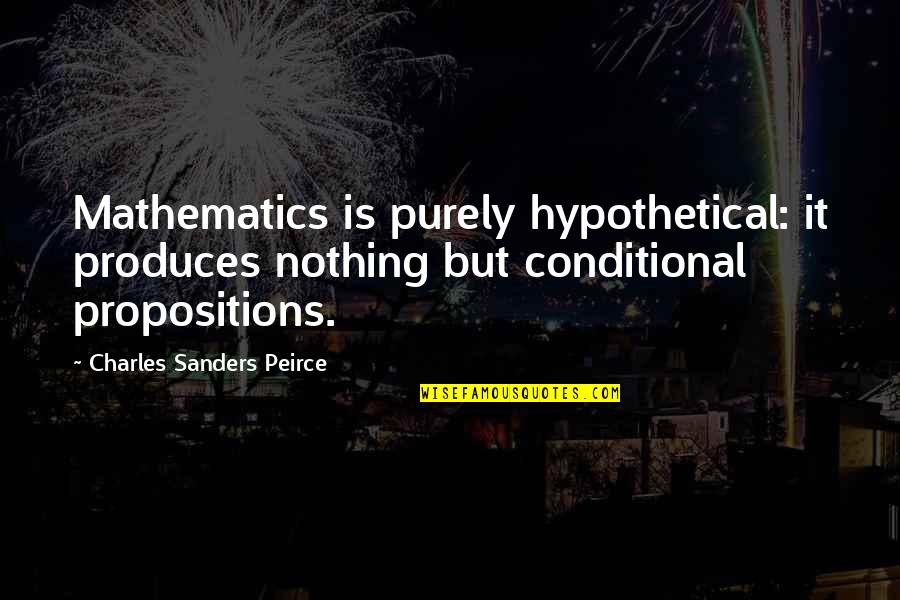 Mathematics is purely hypothetical: it produces nothing but conditional propositions.
— Charles Sanders Peirce
Mathematics is purely hypothetical: it produces nothing but conditional propositions.
— Charles Sanders Peirce
 All the greatest achievements of mind have been beyond the power of unaided individuals.
— Charles Sanders Peirce
All the greatest achievements of mind have been beyond the power of unaided individuals.
— Charles Sanders Peirce
 It is not knowing, but the love of learning, that characterizes the scientific man.
— Charles Sanders Peirce
It is not knowing, but the love of learning, that characterizes the scientific man.
— Charles Sanders Peirce
 Let us not pretend to doubt in philosophy what we do not doubt in our hearts.
— Charles Sanders Peirce
Let us not pretend to doubt in philosophy what we do not doubt in our hearts.
— Charles Sanders Peirce
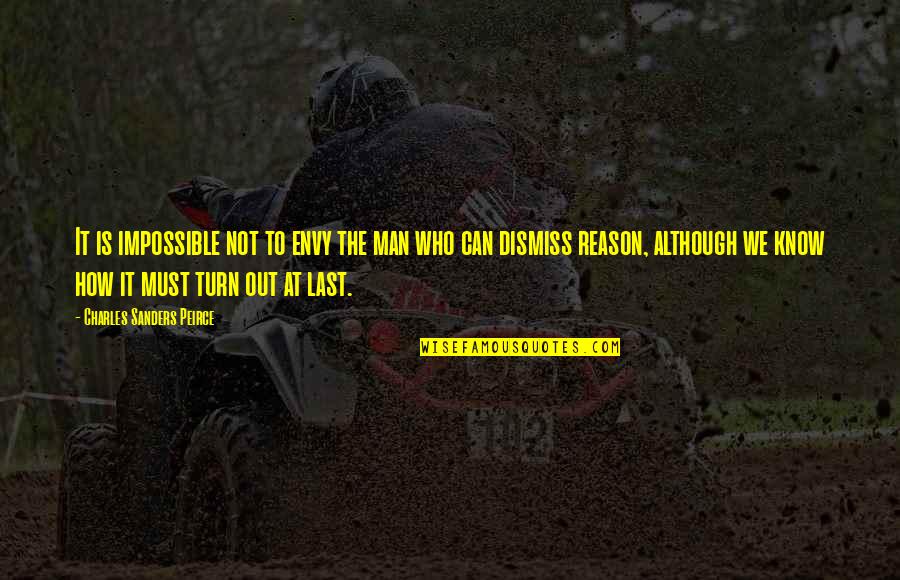 It is impossible not to envy the man who can dismiss reason, although we know how it must turn out at last.
— Charles Sanders Peirce
It is impossible not to envy the man who can dismiss reason, although we know how it must turn out at last.
— Charles Sanders Peirce
 It is ... easy to be certain. One has only to be sufficiently vague.
— Charles Sanders Peirce
It is ... easy to be certain. One has only to be sufficiently vague.
— Charles Sanders Peirce
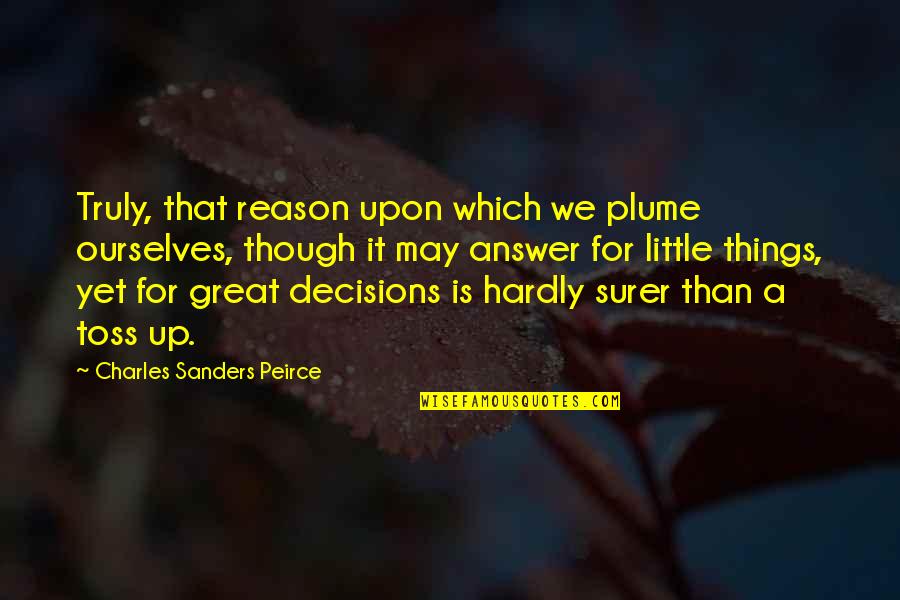 Truly, that reason upon which we plume ourselves, though it may answer for little things, yet for great decisions is hardly surer than a toss up.
— Charles Sanders Peirce
Truly, that reason upon which we plume ourselves, though it may answer for little things, yet for great decisions is hardly surer than a toss up.
— Charles Sanders Peirce
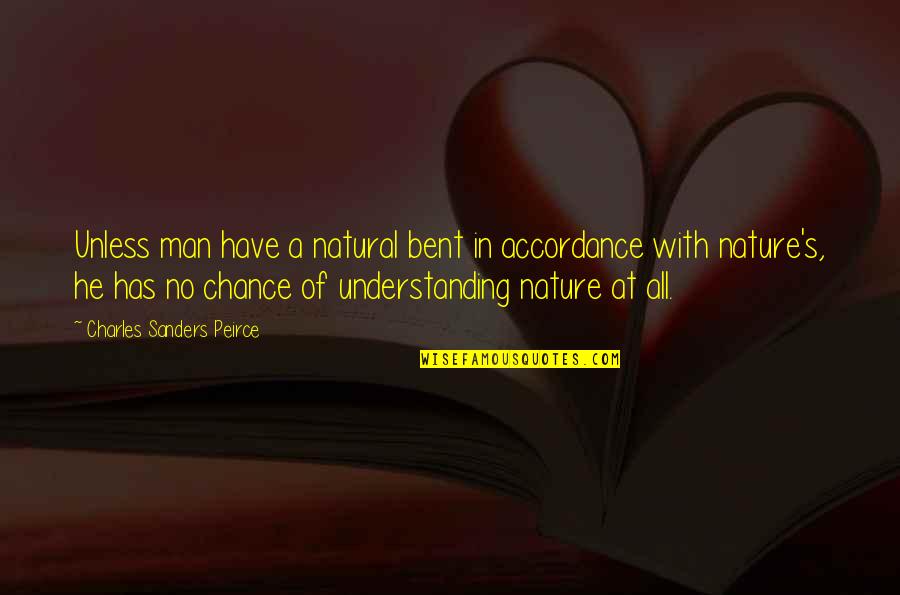 Unless man have a natural bent in accordance with nature's, he has no chance of understanding nature at all.
— Charles Sanders Peirce
Unless man have a natural bent in accordance with nature's, he has no chance of understanding nature at all.
— Charles Sanders Peirce
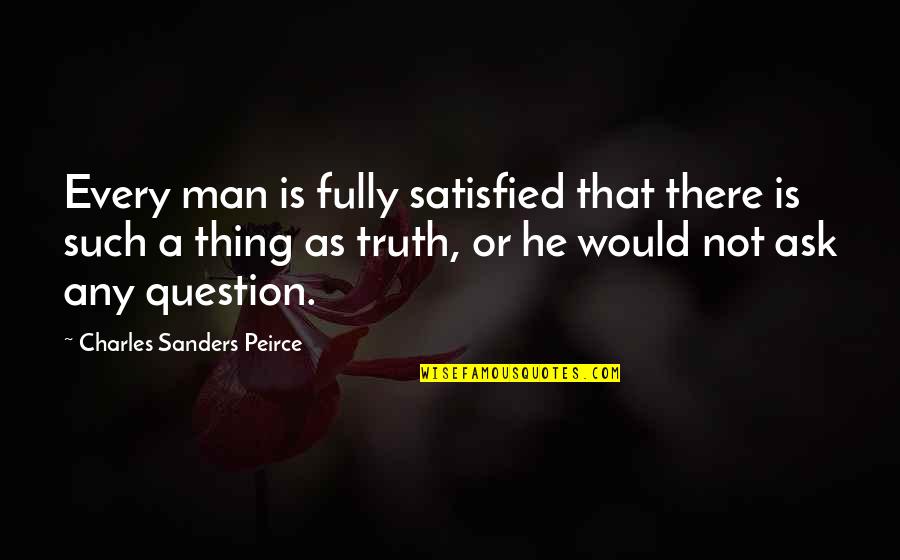 Every man is fully satisfied that there is such a thing as truth, or he would not ask any question.
— Charles Sanders Peirce
Every man is fully satisfied that there is such a thing as truth, or he would not ask any question.
— Charles Sanders Peirce
 And it is probably that there is some secret here which remains to be discovered.
— Charles Sanders Peirce
And it is probably that there is some secret here which remains to be discovered.
— Charles Sanders Peirce
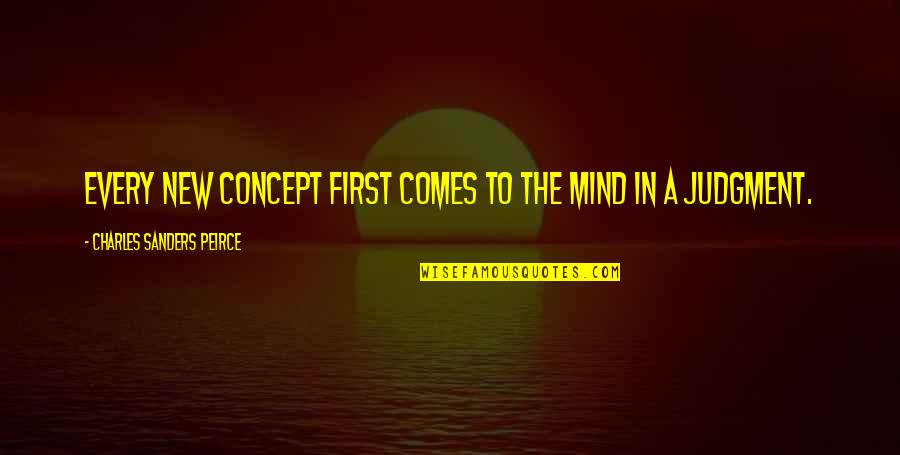 Every new concept first comes to the mind in a judgment.
— Charles Sanders Peirce
Every new concept first comes to the mind in a judgment.
— Charles Sanders Peirce